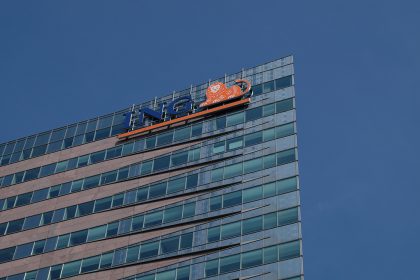ING Bank is moving further towards blockchain privacy: it has announced its Zero-Knowledge Set Membership solution.
Earlier, ING Bank, a financial institution based in Netherlands, has already come forward as an innovative-oriented organization that is open for application of blockchain solution to their financial processes with a view to enhance their clients’ experience.
Last week, at the Sibos banking conference, the lender announced the release of its new blockchain-based product – Zero-Knowledge Set Membership (ZKSM) solution that is aimed at improving the privacy of account holders.
Zero-knowledge Range Proofs
The bank is already known for having facilitated a classical zero-knowledge proofs tool (which presupposes a method of proving of a right to possess a secret without disclosing the secret information itself) in order to adapt it for using within the banking system. This new simplified variant of the above-mentioned tool proposed by ING Bank is known as zero-knowledge range proofs.
Zero knowledge range proofs is used to prove that some number belongs to a concrete range of numbers. It means that a client, a credit or mortgage applicant, has an opportunity to prove that the amount of his or her earnings is included into a specific range but there is no any necessity to reveal the exact sum. Such a method helps to enhance the privacy of clients and at the same time it is much simpler than traditional zero-knowledge proofs. Moreover, range proofs can be conducted significantly faster on a blockchain architecture.
How ZKSM Works
Now, the bank has offered a new solution also aimed at providing its customers more privacy. The new blockchain-based solution, zero-knowledge set membership (ZKSM), now enables the system to refer not only numbers but also alphanumeric data to a specified set. It means that now customers can keep in secret not only exact numbers but also other types of their personal data, including place of living. It is better to explain the working principle of the tool on a concrete example.
Passing a KYC (know-your-customer) procedure, a client is allowed to reveal that he or she is a part of a particular group (let’s suppose that he or she is a citizen of an EU member state) without naming the country of his or her residence. So, without revealing the exact location, the system can approve that the user is a citizen of one of the countries included into the set of all countries situated in the European Union.
Speaking about the bank’s new initiative, Annerie Vreugdenhil, head of wholesale banking innovation at ING, expressed her excitement:
“At ING, we are fortunate to have some of the best minds in the industry working on our programme. And we are excited that our ground-breaking solution is now ready to be implemented and tested.”
It has also become known that it is still not the end of the bank’s way to innovations. According to Vreugdenhil, the launch of ZKSM is just their new stage of learning what benefits distributed ledger technology can bring to the ways of dealing with data and privacy.
next